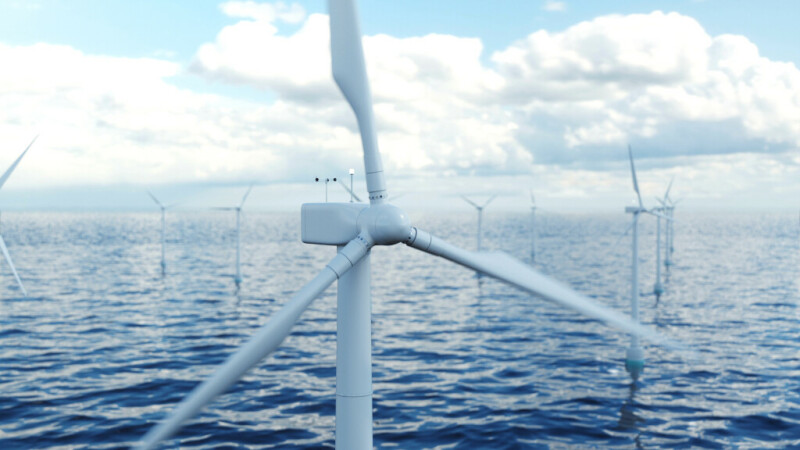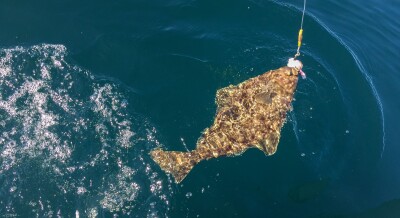Ørsted’s 1,100-megawatt Ocean Wind 1 project off New Jersey won approval from the Bureau of Ocean Energy Management Wednesday, days after state legislators racing a budget clock approved channeling additional tax credits to the developer.
BOEM’s sign-off on the Ocean Wind 1 construction and operations plan marks the third approval of a commercial-scale, offshore wind energy project in the United States, following on the Vineyard Wind project off southern Massachusetts and the South Fork Wind project, south of Rhode Island and east of Montauk on the east end of New York’s Long Island.
Ørsted’s New Jersey project will be a first for that state and is a centerpiece for Democratic Gov. Phil Murphy’s administration plans for expanding renewable energy sources. Republican state lawmakers have been increasingly opposed amid stiff resistance from their constituents in coastal communities and critics’ warnings that offshore wind will increase consumers’ power costs.
The federal approval came days after the New Jersey state Legislature, under the gun to complete state budget votes by day’s end on June 30, approved bills that will allow Ørsted to use federal tax credits to bolster financing for the project.
A furious lobbying effort by offshore wind opponents failed to sway state lawmakers, who voted June 30 to let wind developer Ørsted use federal tax credits to boost financing its Ocean Wind 1 project.
The vote along largely partisan lines lined up Democratic supporters, saying New Jersey stands to gain environmental and economic benefits from what would be its first utility-scale offshore wind project.
Republican legislators said Ocean Wind 1 and other planned projects imperil the state’s coastal tourism economy and fishing industries. New Jersey surf clam operators have sought for years to be assured of 2-nautical mile spacing between turbines to accommodate their dredge boats, to no avail.
The debate has been inflamed for months by an unusually high number of whale strandings on New Jersey beaches during the winter. Wind power opponents argued offshore vessels surveying wind lease sites could have been a factor, while federal officials insist there is no reason to link them.
“They’re killing these whales they’re killing these dolphins,” said state Assemblyman Erik Peterson, R-Hunterdon County.
An intensive social media, telephone and email effort by Ocean Wind opponents pressured legislators, as lawmakers scrambled this week to wrap up New Jersey’s new $54.3 billion budget before July 1.
“Everyone’s emails have been clogged the last few days,” said Assemblyman Gerry Schafernberger, R-Monmouth County.
Wind power proponents touted support for new jobs and work for New Jersey companies from offshore development. As part of the tax credits legislation Ørsted will dedicate $200 million toward expanding the EEW-AOS monopile foundation fabricating facility at Paulsboro, N.J. on the Delaware River. State officials see it as a future hub for other offshore wind power projects all along the East Coast.
“Located about 13 nautical miles southeast of Atlantic City, the project will have an estimated capacity of 1,100 megawatts of clean energy – capable of powering over 380,000 homes – and is expected to create more than 3,000 good-paying jobs through development and a three-year construction cycle,” according to the BOEM announcement.
“Ocean Wind 1 represents another significant step forward for the offshore wind industry in the United States," said BOEM Director Elizabeth Klein. "The project's approval demonstrates the federal government's commitment to developing clean energy and fighting climate change and is a testament to the state of New Jersey's leadership in supporting sustainable sources of energy and economic development for coastal communities."
Meanwhile Joris Veldhoven, CEO of Atlantic Shores Offshore Wind, called for New Jersey lawmakers to extend the tax credits to his company's neighboring project.
"Today’s bill passage reaffirms the State’s commitment to offshore wind," Veldhoven said in a statement issued after the vote. "Yet, to establish a durable, thriving, full-scale offshore wind industry in New Jersey, we need an industry-wide solution, one that stabilizes all current projects including Atlantic Shore Project 1, the largest offshore wind project in the State of New Jersey and third largest project awarded in the United States."
The BOEM Record of Decision (ROD) documents the decision to approve Ocean Wind LLC’s plan to construct up to 98 wind turbines and up to three offshore substations within its lease area.
According to BOEM, the decision requires;
“The extensive range of monitoring and mitigation measures that Ocean Wind will undertake to reduce the potential for impacts to protected species, such as marine mammals, sea turtles, and Atlantic sturgeon. These measures include vessel speed restrictions and clearance zones during construction. Ocean Wind has also committed to three fisheries mitigation programs: a direct compensation program for reimbursement of lost revenues, a navigational safety fund for navigation equipment upgrades, and a reimbursement program for lost or damaged commercial fishing gear.”
Organized by local activists in Jersey Shore beach communities, the opposition effort reached out to part-time summer residents who live inland, putting more pressure on legislators in suburban and rural districts.
But during the frenetic June 30 votes in Trenton, offshore wind supporters carried the day.
With smoke from wildfires in Canada’s forests drifting over the East Coast, “we know that New Jersey is no longer a stranger to the effects of climate change,” said Assemblyman Louis Greenwald, D-Burlington, the Democratic majority leader in the lower house and a chief sponsor of the tax credit measure.
“We have to look at the reality of how we get this project finished to the benefit of New Jersey,” said Greenwald during the Friday debate in the New Jersey Statehouse.
Ørsted’s original bid to New Jersey’s offshore wind power solicitation four years ago has come under pressure after the covid pandemic economic pressures, global effects on trade from the war in Ukraine and inflation, Greenwald argued.
The Biden administration’s boost of federal income tax credits for renewable energy projects offers a “once in a generation environmental and economic opportunity” for keeping Ocean Wind 1 viable, he said.
The merged state Assembly and Senate bills included sending $200 million into an escrow account to develop the facility at Paulsboro, N.J., on the Delaware River that builds monopile foundation components for turbines.
“Much of the opposition to this bill is opposition to offshore wind energy in general,” said Greenwald.
Greenwald said the “passback” of federal tax subsidy to Ørsted would divert about $2.40 a year to utility customer to the company. Without the change, Ocean Wind 1 may not be built, he said.
“This is a a bailout to a foreign company on the back of ratepayers,” said Assemblywoman Victoria Flynn, R-Monmouth, who objected that cost effects are based on Ørsted projections. “This bill does not benefit New Jersey taxpayers.”
Efforts from local activist groups aimed to peel away Democratic legislators’ support for the Murphy administration’s offshore wind power plans. In the end, they could only dent the Statehouse votes from the Democratic majority.
The lower Assembly house voted 43 to 32 to accept the Ørsted tax credit deal, followed a few hours later on Friday by state senators voting 21 to 14 in favor as they hurried to wrap up loose ends for the state’s $54.3 million budget.
Veldhoven of Atlantic Shores said that project is under the same pressures that led to the Ocean Wind 1 deal.
"Tens of thousands of real, well-paid and unionized jobs are at risk. Hundreds of millions in infrastructure investments will be forgone without a path forward.
"And while the current bill provides uplift for our manufacturing partner EEW-AOS at the Port of Paulsboro, and we remain confident that EEW-AOS will be prepared to start manufacturing monopiles for Atlantic Shores Project 1, we need immediate action that also supports the Atlantic Shores Project 1 to keep these commitments within reach."







